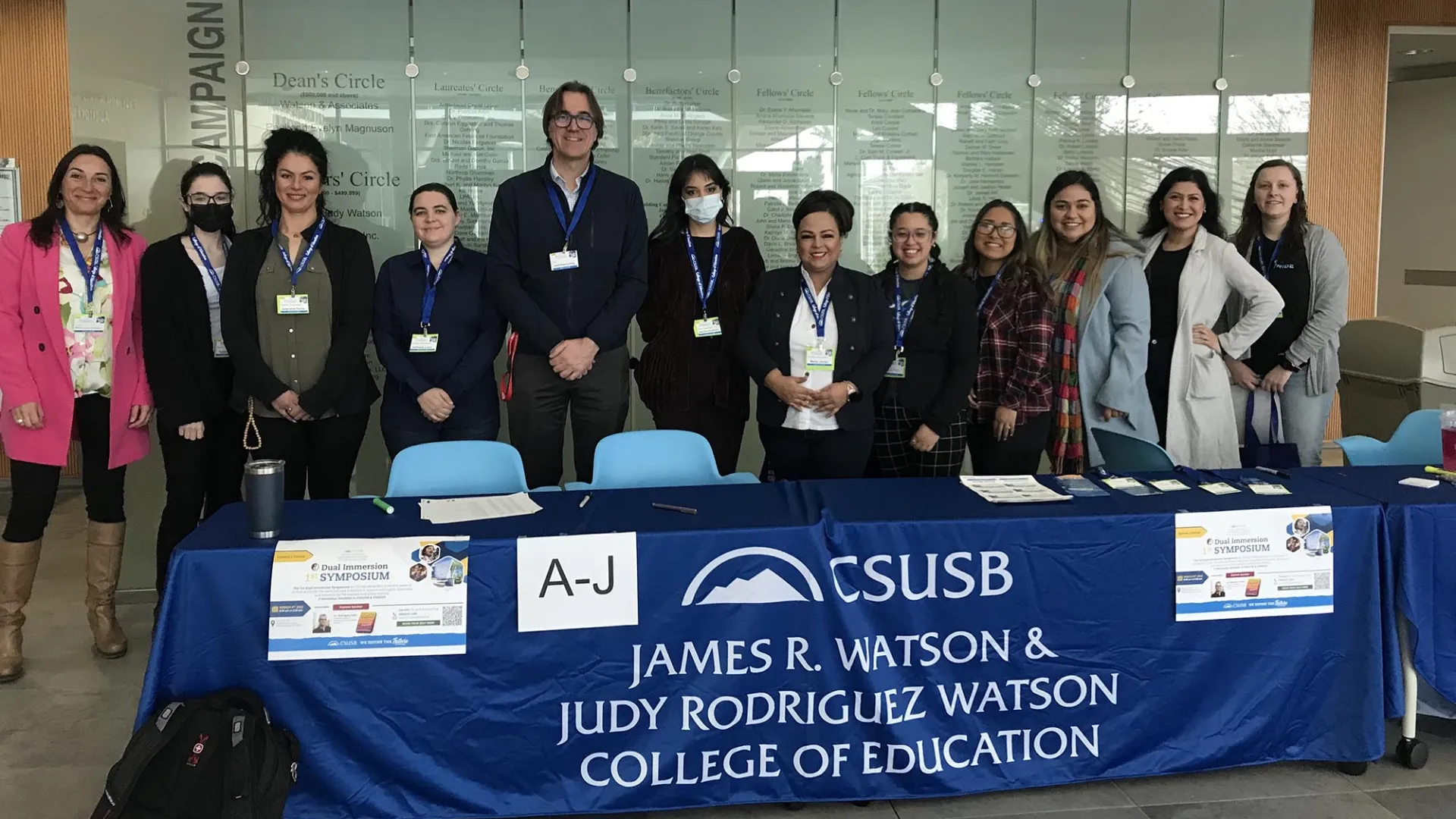Alan Llavore | Office of Strategic Communication | (909) 537-5007 | allavore@csusb.edu

The James R. Watson and Judy Rodriguez Watson College of Education (WCOE) at Cal State San Bernardino celebrated its first Dual Immersion Symposium event with the aspiration to become a yearly staple to cherish bilingual education in the Inland Empire.
The March 4 event brought students, educators and leaders in an academic setting and created a platform to build connections, share ideas and network to support the dual immersion program in this region. The symposium also created awareness of these programs and the support needed in order for them to grow.
As summarized on the Dual Immersion Symposium webpage, the event included five sessions in both Spanish and English, aimed at students, bilingual teachers and administrators. The free event, funded by the Teacher Education Foundation Department, enrolled more than 100 attendees.
Interest in Dual Language Immersion (DLI) programs has been growing in the last two decades as a high-quality bilingual education response for all students, but especially for English learners. Typically, students in these programs start the immersion in a partner language as early as kindergarten and remain in them for at least six years. The final goal is to create fully bilingual and biliterate students by the end of their stay in the program.
Why a DLI Symposium at CSUSB? CSUSB is a public institution that is at the service of the community, which provides high-quality multilingual education and strives to enhance the Spanish bilingual training at the Watson College of Education, collect local needs and expand the current course offerings.
“Our main objective is to improve the Spanish bilingual training program at the Watson College of Education and broaden the range of training available, with a clear intention of establishing ourselves as the prominent institution in the Inland Empire region,” said Jordi Solsona-Puig, CSUSB assistant professor in the WCOE and the symposium chair.
Another goal for the Dual Immersion Symposium was to call the region’s attention to the need to invest in the DLI programs and to enhance Spanish bilingual programs within the region. Attendees also learned from guest speakers. Scholars, experienced DLI teachers and administrators, and the Spanish Embassy representatives shared their knowledge and resources on how DLI programs can be enhanced and how to raise awareness of the importance of multilingualism and multiculturalism in the community.
Experts in the field conducted workshops. As an introduction, Solsona- Puig’s presentation explained that bilingual education is broadly defined as instruction of academic content in two or more languages and shared demographics of the DLI in the Inland Empire. Presenters came from Cal State Fullerton, Glendale Unified School District and the Education Office of the Consulate of Spain in Los Angeles.
“The DLI symposium was an excellent opportunity to network with DLI professionals across Southern California, to meet new leaders in the field and to reconnect with former students and other working professionals,” said Nena Torrez, the symposium co-chair and longstanding bilingual professor at the WCOE. “I enjoyed learning about practices and trends across school districts, county offices of education, and higher education to better serve teacher candidates, school children and the larger community. An annual event not to be missed!”
One of the student ambassadors, Alissa Babineau, who helped with the organization of the event shared her thoughts too: “As an English-only speaker, with limited Spanish knowledge, the symposium opened my eyes to the experiences of my future students, who may not know or be comfortable with the language being spoken around them. … This symposium highlighted the beauty and importance of students’ native languages and how we can celebrate, honor and support them as educators and community members.”
Gabriella Perez, who also helped with the organization of the event as a student ambassador, commented: “The Dual Language Symposium was very informative. … The guest speakers shared so much that I have a much better idea of what they are, and I have a positive outlook for these programs. DLI really is an asset for education and benefits students in so many ways.”
The second Dual Immersion Symposium is set for March 8-9, during the 2024 spring semester.